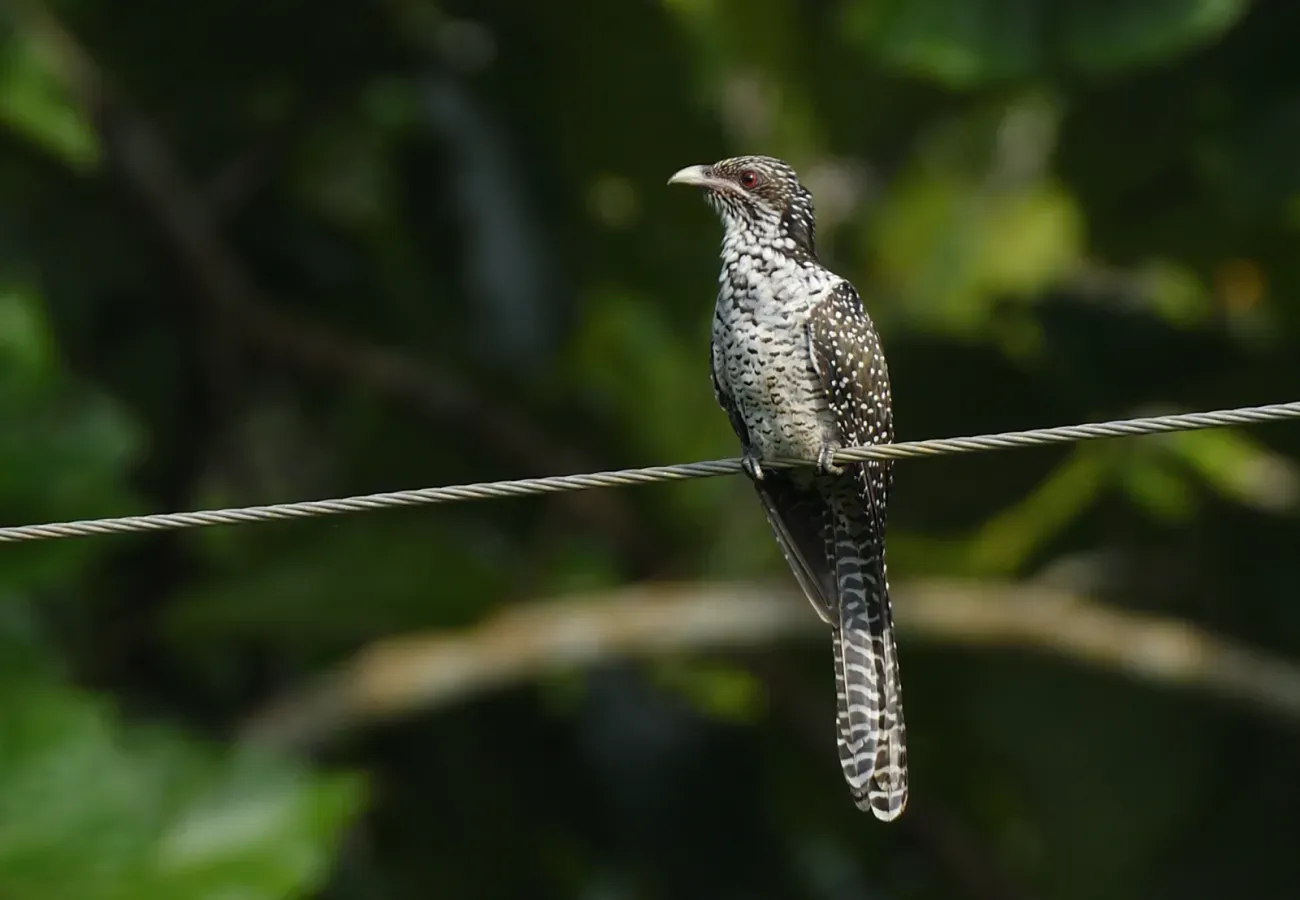
Asian Koel
Asian Koel
100
2 hours ago
Not yet spotted on Fladder
Spotted
The Asian Koel is a widespread and well-known species of cuckoo across Asia, famous for its loud, persistent calls and brood-parasitic nature. Males are glossy black with striking red eyes, while females are heavily spotted and barred.
Where to spot
Found across the Indian subcontinent, Southeast Asia, southern China, and parts of Australia and the Pacific Islands. Inhabits gardens, open woodlands, plantations, and urban areas wherever host birds (crows) are present.
How to spot
Listen for the male's loud, ascending "ko-EL" call, often repeated rapidly and persistently. Females have a harsher "kik-kik-kik" call. Look for males' glossy black plumage and red eyes; females are brown with heavy white spotting and barring. They often perch conspicuously high in trees.
When to spot
Most vocal and easily observed during the breeding season (typically spring and summer, correlating with host breeding cycles). Calls are particularly prominent during dawn and dusk.
Where to spot
Found across the Indian subcontinent, Southeast Asia, southern China, and parts of Australia and the Pacific Islands. Inhabits gardens, open woodlands, plantations, and urban areas wherever host birds (crows) are present.
How to spot
Listen for the male's loud, ascending "ko-EL" call, often repeated rapidly and persistently. Females have a harsher "kik-kik-kik" call. Look for males' glossy black plumage and red eyes; females are brown with heavy white spotting and barring. They often perch conspicuously high in trees.
When to spot
Most vocal and easily observed during the breeding season (typically spring and summer, correlating with host breeding cycles). Calls are particularly prominent during dawn and dusk.
The Asian Koel is a notorious brood parasite, laying its eggs in the nests of other birds, primarily crows. The unsuspecting foster parents then incubate the koel eggs and raise the koel chicks, often at the expense of their own offspring.
Loading...
Spotted
- Recently spotted
- 11280 (Seen in the last 3 months)
- Last spotted
- 2 hours ago
Monthly observations
No observations
Loading...
Nothing spotted yet








